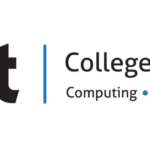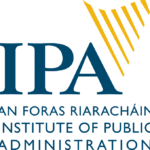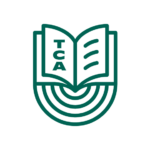Accountancy (or accounting) is generally regarded as the language of business, and to a large extent this is true. Accountancy courses will bring you right into the world of accountancy and show you all the disciplines involved in this rewarding profession.
No business, of any kind, could run effectively without having a means of recording its financial transactions. Accounting provides companies with a way of doing so as it collates and classifies all monetary information. By keeping track of its income and expenses, an organisation can thereby assess its current financial standing in terms of losses, stability or profitability all of which impact heavily on strategies for the future and on budgetary activity. Areas such as marketing, research and development, and profit reinvestment are all therefore reliant on the work of an accountant. It is for this reason that accountants have been said to constitute the backbone of all kinds of business enterprises an accolade that is often well deserved.
What do accountancy courses involve
Accountancy is a vast and constantly evolving profession. Central career areas within the field include financial, management, public, forensic, tax and public (or government) accounting.
Study of the subject generally involves undergoing training in the principles of economics, auditing, management accounting, financial theory, and in the ethical and legal considerations in modern business practice. There are a number of routes available to those with limited or no accounting experience. The scope and delivery of these options, however, will vary depending on the professional body awarding the qualification.
The Association of Chartered Certified Accountants (ACCA), for instance, is the global body for professional accountants, and those with an ACCA qualification are highly sought after by employers. To qualify as an ACCA member (i. e. a Chartered Certified Accountant), students will need to pass 14 exams and complete at least three years of study (note that the time limit to pass all exams is 10 years, and so part-time study is facilitated). The qualification also requires three years work experience, which can be taken in any company, anywhere in the world.
Students need not feel overwhelmed by the level of commitment involved, however. A part-time ACCA Diploma in Accounting and Business acts as an introduction to the subject and can be taken over the course of three-to-four months. The diploma will also entitle graduates to exemptions from the first three ACCA exams.
Other highly popular accountancy qualifications that are designed to boost employment prospects and long-term security include: the Certified Public Accountant (CPA) qualification; the Chartered Institute of Management Accountants (CIMA) qualification; and the Chartered Accountants Ireland qualification all of which enjoy international standing and can be taken on a part-time basis.
Why do it
Accountancy has retained its place as one of the top careers in Ireland a claim supported by the fact that the Big Four accounting firms in this country recruited the same number of graduates in 2012 as they did before the start of the economic crisis back in 2008. Indeed, it could be argued that the services of a top-quality accountant are now even more in demand as companies seek to shore up their finances and return to growth. Aside from the incentive of employment, accountancy is also an area of study and work that is a perfect fit for anyone with an analytical mind.
What comes next
Having qualified with certificates or diplomas, the next step on the road for many of those hoping to become professional accountants is to move on to studying for the full qualifications discussed above. Those who obtain these qualifications have huge career maneuverability and can work in an array of areas and business types, such as ICT, financial services, and retail, among a host of others.
At a glance
Accountants are essential to the running of any business and so will always be in demand. There are several of professional accountancy qualifications. Students that already hold degrees in the subject will be given exemptions from some of the compulsory exams; those with no accounting experience can begin their journey at Certificate or Diploma level.















